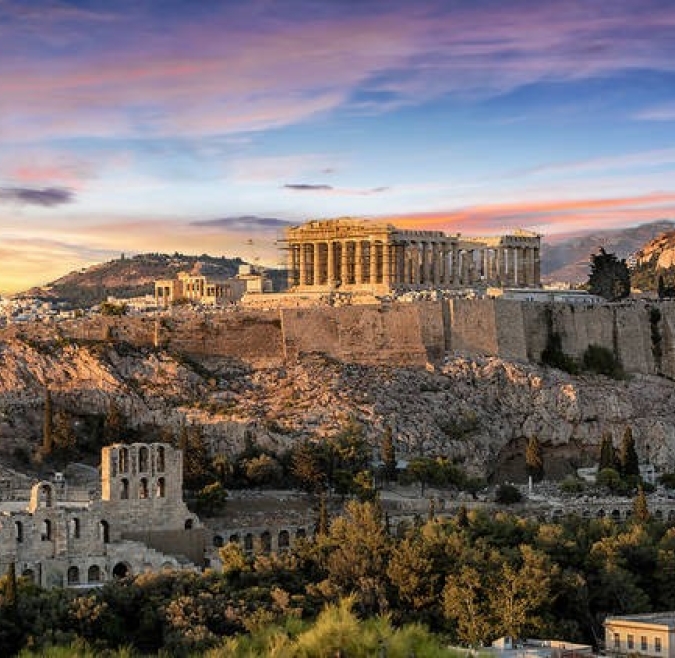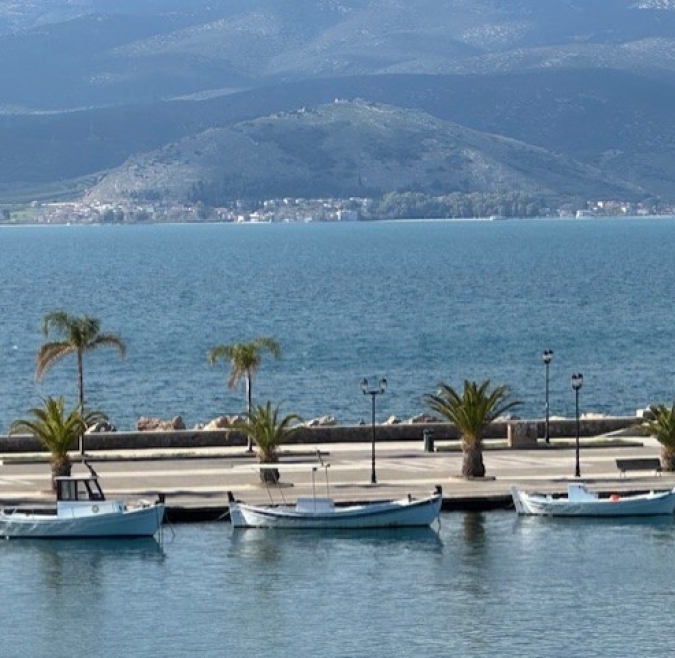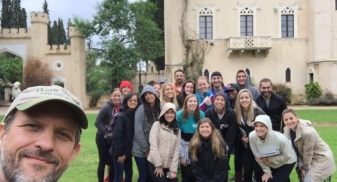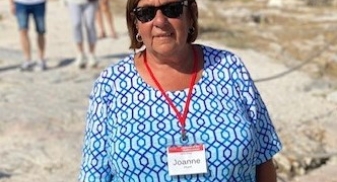Winter: Rutgers- Lifestyles of the Mediterranean
The Program
Come experience the culture of health and wellness that define the Mediterranean lifestyle.
The course Lifestyles of the Mediterranean combines theoretical lectures with experiential activities to cover the fundamental principles and components of the Mediterranean lifestyle, i.e., the adoption of the Mediterranean diet, the promotion of a physically active lifestyle, and other lifestyle habits that have been found beneficial for health (e.g., adequate rest, hydration, conviviality during meals and exercise).
Some days will be devoted to theoretical lectures, followed by relevant experiential activities or study and research in libraries of local institutions. Other days will be devoted entirely to field trips, excursions and interactive educational activities, including visits to monumental sites, demonstrations of Mediterranean lifestyle practices by local community members, cooking classes and tasting of Mediterranean recipes in traditional food-service establishments, as well as collective sports activities in nature (walking, cycling, hiking, etc.).
Program Locations

Greece
Athens
Athens is the capital of Greece and it is one of the world's oldest cities. Classical Athens was a powerful city-state, a centre for the arts, learning and philosophy, and it is widely referred to as the cradle of Western civilization and the birthplace of democracy, largely because of its cultural and political impact on the European continent and in particular the Romans.
In modern times, Athens is a large cosmopolitan metropolis and central to economic, financial, industrial, maritime, political and cultural life in Greece. While in Athens, students will visit monumental sites and archaeological places, including the Parthenon and the Acropolis museum, traditional food markets and establishments ("laiki" and fish wharves), as well as experience other opportunities that the city has to provide.

Greece
Nafplion
One of the most beautiful towns in the area of Argolis (in eastern Peloponnese), Nafplio was the first capital of the newly born Greek state between 1823 and 1834.
According to mythology, the town was founded by Náfplios, the son of god Poseidon and the daughter of Danaus (Danaida) Anymone. The town’s history traces back to the prehistoric era when soldiers from here participated in the Argonautic expedition and the Trojan War alike.
The town declined during the Roman times and flourished again during the Byzantine times. Frankish, Venetian and Turkish conquerors left their mark in the town and strongly influenced its culture, architecture and traditions during the centuries. Ancient walls, medieval castles, monuments and statues, Ottoman fountains and Venetian or neoclassical buildings mesmerize the visitor with their unique architecture and beauty.
Academics
The traditional Mediterranean lifestyle, a cluster of habits and practices that have been associated with various health benefits, is the heritage of millennia of exchanges of people and cultures of all countries around the Mediterranean basin. With a view of spreading the core constituents of the traditional Mediterranean lifestyle and passing the knowledge regarding its beneficial effects on health, the program «Lifestyles of the Mediterranean» aims to introduce this traditional lifestyle pattern to students of the modern era, through observing traditional practices and undertaking experiential activities.
The program will take place in Greece, where the Mediterranean lifestyle has been implemented for thousands of years. Lectures, workshops and other educational activities will cover the fundamental principles of the Mediterranean diet, a dietary pattern that has been recognized by UNESCO as an Intangible Cultural Heritage of Humanity and recently proposed as a health promoting diet in the 2015-2020 USDA Dietary Guidelines for Americans. The program will also address other Mediterranean lifestyle practices, including: 1) consumption of fresh, minimally processed, local, seasonal and eco-friendly foodstuffs, 2) frugality and moderation in relation to energy balance and body weight, 3) use of herbs and spices to introduce a variety of flavors and palatability to dishes and allow for a reduction in salt use, 4) adequate hydration with emphasis on water and traditional herbal infusions, 6) adoption of a physically active lifestyle, 7) conviviality with regard to the social and cultural value of meals and physical activity, and 8) stress relief and adequate rest during the day.
During the first week, the program’s educational activities will take place in Athens, the capital of Greece. While in Athens, students will familiarize with the history, evolution and culinary aspects of the Mediterranean lifestyle, through visits to archaeological sites and educational workshops in traditional food markets and establishments. The program will continue with a 5-day trip to Peloponnese, a peninsula in the southern part of Greece. While in Peloponnese, students will study the production, nutritional properties and health benefits of traditional Mediterranean foods and spirits, familiarize with the concept of Greek breakfast, taste traditional Mediterranean recipes, and participate in several interactive educational group activities. During the 2-week program, some days will be devoted to theoretical lectures, discussion sessions or workshops on the scientific and culture themes of the day, followed by studying in local institutions. Other days will be devoted entirely to field trips, excursions and interactive educational activities, including visits to monumental sites and cultural places of natural beauty, demonstrations of Mediterranean lifestyle practices, as well as collective activities in nature.
Fulfills 3-credit upper level elective for Exercise Science and Sport Management majors.
Download the 2026 Syllabus
Download the 2026 Itinerary
Download the Program Brochure
Learn more about the program here: https://youtu.be/qmca_U0bf9Q and https://youtu.be/8nxbEdwYVZQ
Housing and Meals
Students will share rooms in hotels, breakfast and most meals will be included.
Financial Information
Program Costs
| NJ Resident | non-NJ Resident | |
|---|---|---|
| Undergraduate | $3,940 | $4,400 |
| Graduate | $4,270 | $4,660 |
Program Cost includes:
- Tuition
- Housing
- Most meals
- Excursions
- Administrative Fees
- Emergency Medical Access Abroad
Out-of-Pocket Costs
| Airfare | $1,100 |
| Meals | $250 |
| Books and Classroom Materials | $50 |
| Personal Expenses | $200 |
| Total | $1,600.00 |
Out-of-Pocket Cost includes:
The above costs are estimations and represent the known out-of-pocket costs students encounter during their time abroad.
Some of these expenses will be paid for prior to going abroad, such as an airline ticket, while some of these expenses, such as meals and personal expenses, will be paid in-country as part of your daily expenses. As you plan, you will need to budget these costs and spend wisely throughout your time abroad.



